Andrew McGregor
Eurasia Daily Monitor
Jamestown Foundation, Washington DC
March 12, 2024
Executive Summary:
- Moscow is consolidating the Wagner Group’s operations in Libya under the direct control of the Main Directorate of the General Staff of the Armed Forces (GRU) and instituting the African Corps, run by Russia’s Deputy Defense Minister.
- “Field Marshal” Khalifa Haftar of the Libyan National Army is building connections with Russia to gain special forces training in exchange for further Russian presence in Libya while being warned against this by the United States.
- Russia’s GRU is preparing important strategic plays in Libya through military operations that might shift the balance of power in the Mediterranean.
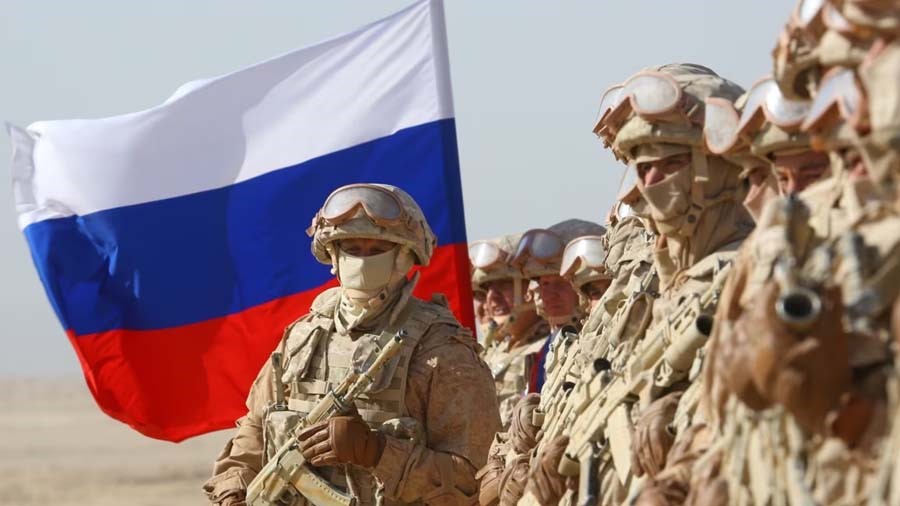 Libya’s broken government has offered a pathway to Russian influence in the oil-rich nation since 2018. With the death of Wagner leader Yevgeny Prigozhin in August 2023, Moscow is consolidating the Wagner Group’s operations in Libya under the direct control of the Main Directorate of the General Staff of the Armed Forces of the Russian Federation (GRU). It is a move with political as well as military implications. There are currently at least 800 Russian contractors in Libya, supported when necessary by up to 1000 Syrian militiamen based in Benghazi (Arab News, November 15, 2023; Al-Jazeera, February 25; Soufan Center Intel Brief, March 6).
Libya’s broken government has offered a pathway to Russian influence in the oil-rich nation since 2018. With the death of Wagner leader Yevgeny Prigozhin in August 2023, Moscow is consolidating the Wagner Group’s operations in Libya under the direct control of the Main Directorate of the General Staff of the Armed Forces of the Russian Federation (GRU). It is a move with political as well as military implications. There are currently at least 800 Russian contractors in Libya, supported when necessary by up to 1000 Syrian militiamen based in Benghazi (Arab News, November 15, 2023; Al-Jazeera, February 25; Soufan Center Intel Brief, March 6).
Eastern Libya (Cyrenaïca) and southwest Libya (Fezzan) are currently under the authority of Libya’s parliament, the House of Representatives (HoR). The Tobruk-based HoR is dominated by “Field Marshal” Khalifa Haftar and his Libyan National Army (LNA), which is more a collection of militias and mercenaries than a “national army.” Haftar, an American citizen and former CIA asset, is supported by Russia, the United Arab Emirates, and Egypt (though Egypt’s support is ebbing due to Haftar’s backing of Sudan’s Rapid Support Forces). Opposed to the HoR and the LNA is the internationally recognized Government of National Unity (GNU), based in Tripoli with the support of Qatar, Italy, and Türkiye. In the continuing absence of a national president, the functions of the head of state are carried out by the allied High Council of State.
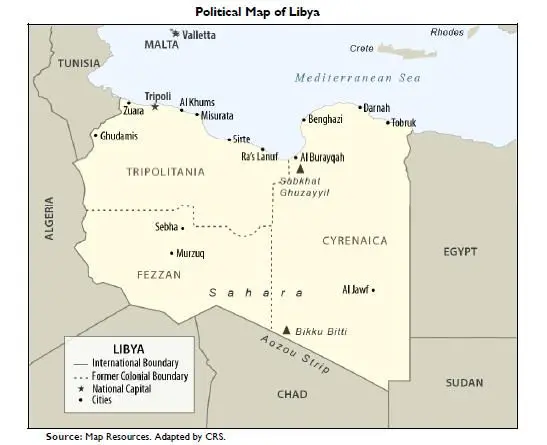 Wagner backed Haftar’s failed 2020 attempt to take Tripoli. Many of the Wagner fighters were inexperienced and performed poorly on the front lines, creating tensions with LNA commanders and Haftar, who delayed payment to the group (Libya Observer, May 14, 2020). An October 2020 ceasefire allowed the redeployment of some Wagner personnel, including Syrian mercenaries, to Mali and Ukraine (Libya Observer, March 22, 2022).
Wagner backed Haftar’s failed 2020 attempt to take Tripoli. Many of the Wagner fighters were inexperienced and performed poorly on the front lines, creating tensions with LNA commanders and Haftar, who delayed payment to the group (Libya Observer, May 14, 2020). An October 2020 ceasefire allowed the redeployment of some Wagner personnel, including Syrian mercenaries, to Mali and Ukraine (Libya Observer, March 22, 2022).
Following the collapse of the LNA/Wagner offensive, Moscow informed Tripoli’s GNU that it now supports UN efforts to promote fair elections for a unity government (Libya al-Ahrar, December 7, 2023). Russia’s newly reopened embassy in Tripoli is headed by Ambassador Aydar Rashidovich Aganin, a Muslim Tatar (Libya Observer, February 22). A Russian consulate scheduled to open in Benghazi before the end of the year has been meeting GNU opposition (Libya al-Ahrar, February 10; Agenzia Nova, February 23).
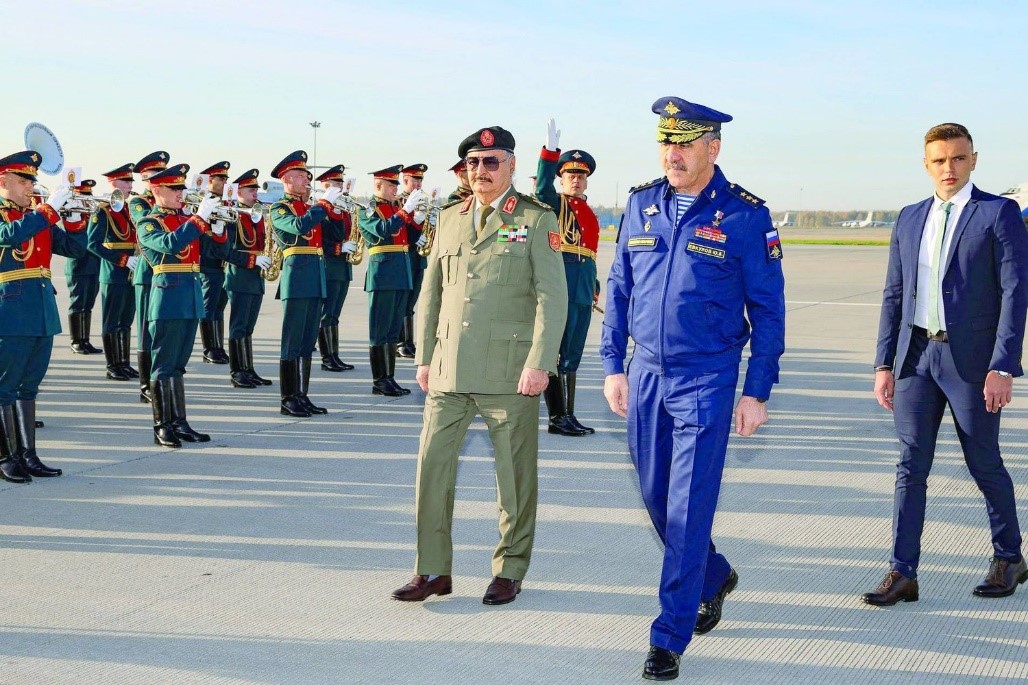 General Yevkurov Greets Field Marshal Haftar in Moscow (AFP)
General Yevkurov Greets Field Marshal Haftar in Moscow (AFP)
Though he was previously warned off by an American delegation that cited a Russian risk to public security, Haftar held talks in Moscow with Russian President Vladimir Putin and Russian Defense Minister Sergei Shoigu in September 2023 (Asharq Al-Awsat, May 13, 2019; Sputnik, September 29, 2023; Libya Al-Ahrar, September 30, 2023). Unverified reports suggested that Hafter was seeking air-defense systems, pilot training, and special forces training in exchange for upgrades to airbases previously used by Wagner so they would be better suited for use by Russian military personnel (Libya Security Monitor, November 5, 2023; Libya Observer, November 11, 2023).
Docking rights for Russian warships at a Libyan port were also considered, though a source close to Haftar denied these were part of the talks (New Arab, October 9, 2023; Asharq al-Awsat, November 7, 2023). The most likely location for a Russian naval base would be the deep-water port of Tobruk, a significant improvement on Russia’s modest Mediterranean naval facilities at Tartus and Latakia in Syria (Libya Observer, January 31).
Haftar continues to meet with American military and state officials, even though this may only provide him leverage in his dealings with the Russians, who do not appear to oppose his plan to establish his family as a ruling dynasty. The meetings with American officials, however, may also raise suspicions in the Russian camp, which finds Haftar useful but not irreplaceable.
Russian military operations in Libya are being handed over to its new African Corps (AK) under the supervision of Russia’s Deputy Minister of Defense and former head of Ingushetia (2008-2019), Colonel General Yunus-Bek Yevkurov (Vedomosti, December 22, 2023). Yevkurov is best known for leading the Russian task force that marched 300 miles from Bosnia to seize Kosovo’s Pristina International Airport ahead of NATO forces in 1999, a signal to the West that post-Soviet Russia was still a force in Europe.
Yevkurov and GRU General Andrei Averyanov have been visiting all their new partners in Africa, including Libya, Niger, Burkina Faso, Mali, and the Central African Republic (CAR) (African Defense Forum, January 16). General Averyanov is the former head of the GRU’s Unit 29155, which was responsible for assassinations, sabotage, and destabilization operations. Yevkurov has made four visits to Libya in the last six months, the most recent in late January.
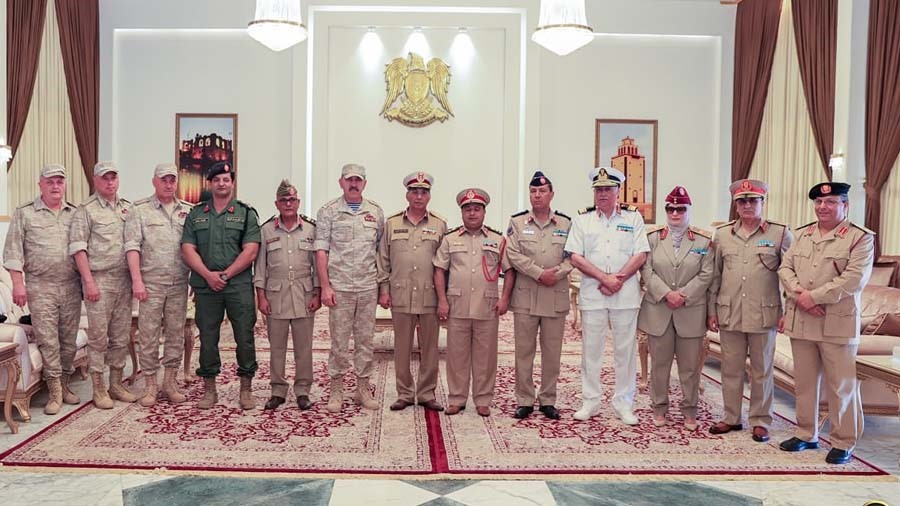 General Yevkurov with Russian and Libyan Officers in Benghazi (Libya al-Ahrar)
General Yevkurov with Russian and Libyan Officers in Benghazi (Libya al-Ahrar)
The Russian Ministry of Defense is offering former Wagner fighters new AK contracts (Vedomosti, December 22, 2023). In the pattern of colonial armies, African volunteers may be incorporated into the AK to bring it up to a projected 20,000 men under Russian command. Wagner’s security protection work is likely to be farmed out to other Russian private military companies (PMCs), like Redut and Convoy (Ukrainska Pravda, January 30; for a detailed analysis of Russian PMCs, see EDM, March 3).
Al-Jufra, Sirte, and Brak al-Shati airbases have already been integrated into a Russian air-supply route from Latakia to Bangui and the Sahel. Russian aircraft do not use Libyan bases with impunity. Two Ilyushin military transports were destroyed by drones of uncertain origin last year at al-Khadim and al-Jufra airbases (Libya al-Ahrar, December 21, 2023).
When the deployment of the AK is finished this summer, Libya will be an important staging post for Russian operations in Sudan, the CAR, and the new military Alliance of Sahel States, consisting of Niger, Mali, and Burkina Faso.
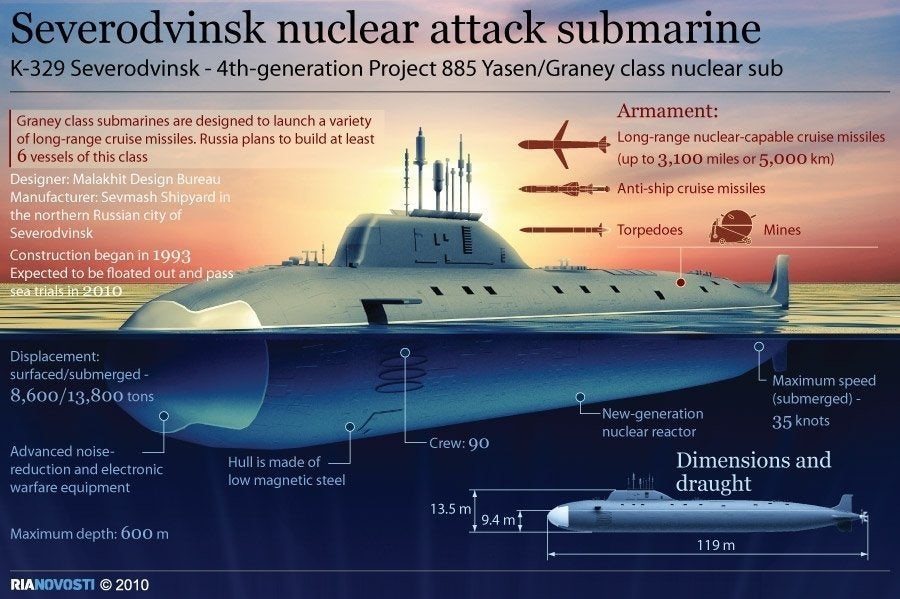 The GRU takeover of Russian forces in Libya raises several questions:
The GRU takeover of Russian forces in Libya raises several questions:
- Wagner forces have been far from invincible on Libyan and African battlefields; if units of the new GRU-run AK run into trouble, will the GRU’s Spetsnaz (special forces) brigades intervene?
- What role will GRU-controlled land forces and ships play in a hybrid-warfare manipulation of migrant flows through Libya to Europe?
- The GRU was not intended to manage business operations. Will Wagner’s existing operations (including those of no strategic value, such as breweries) be absorbed to finance the GRU’s Africa Corps or hived of to other Russian interests (African Defense Forum, April 4, 2023)?
- Russian nuclear submarines returned to the Mediterranean for the first time in 23 years with the 2022 visit of the K-560 Severodvinsk (Yasen class) and the K-157 Vepr (Akula-II class). There have been visits since by Kilo-class submarines, but durations are typically short due to a lack of suitable maintenance facilities (The Barents Observer, October 30, 2016; Majorca Daily Bulletin, October 18, 2023). Will a Russian naval base in Libya host a permanent Russian nuclear submarine force with its attendant atomic threat to Europe’s southern flank?
Using the multiple diversions presented by a US presidential election year and conflicts in Gaza and Ukraine, Russia’s GRU is busy preparing important strategic plays in Libya that might shift the balance of power in the Mediterranean.
